
Choosing between Windows 11 Home and Pro can feel confusing. This guide simplifies the Windows 11 comparison by highlighting core differences. Microsoft offers these Windows 11 versions to cater to different needs. While both are part of the latest OS, their features and pricing vary widely.
Let’s explore how 11 home and pro editions differ in security, business tools, and performance. This Microsoft OS options breakdown helps decide which fits your lifestyle or business.
Microsoft has been perfecting its Windows operating system for decades. It started with Windows 95 and has come a long way to today’s cloud-connected systems. Each version was made to meet the changing needs of users. Let’s see how these changes led to the Windows 11 options we have today.
Windows has changed a lot from its first release in 1985. Some major milestones include:
Microsoft’s Microsoft Windows strategy targets different user groups. The 11 home and pro differences show this:
Understanding who each version is for helps make the right choice:
| Windows 11 Home | For families and casual users needing reliability |
| Windows 11 Pro | For developers, IT pros, and small businesses needing customization |
These differences ensure each group gets the right tools without unnecessary complexity.
For everyday users, Windows 11 Home features offer a solid base without extra complexity. It focuses on Windows 11 standard functionality for browsing, streaming, and multitasking. Let’s explore what makes it perfect for personal use.
The Windows 11 standard functionality includes a redesigned Start menu and centered apps. It also has Home edition performance for smooth operation. Features like Snap Layouts and Desktops help you arrange windows and organize your work.
These apps are preloaded, making the Home edition ready to use right away.
When comparing Home edition performance, it handles everyday tasks well. It’s great for streaming, light gaming, and media editing. It may not have Pro’s virtualization tools, but it offers reliable speed for most users.
Upgrading from older systems? The Home version runs smoothly on compatible hardware. It balances power and simplicity.
When comparing Windows 11 Pro features to the Home edition, the Professional edition benefits are clear. It’s made for business users and power users. The Pro version has tools that go beyond everyday computing. Let’s look at what makes it stand out.
One of the key business Windows features is domain join capability. This lets IT admins integrate devices into corporate networks. It enforces policies that keep data secure. Group Policy Management makes system-wide updates and settings easier across devices, streamlining IT operations.
Data security is a top priority with Pro’s BitLocker encryption. This tool encrypts entire drives, protecting sensitive files from unauthorized access—even if a device is lost or stolen.
These Windows 11 Pro features show the 11 home and pro differences. While Home is great for personal use, Pro’s advanced management and security tools are vital for businesses. When choosing, consider if you need enterprise-grade control or just everyday functionality.
Choosing between Windows 11 Home and Pro starts with understanding their core differences. This Windows 11 version comparison highlights features that matter most for your daily use.
Starting with the basics, both versions share the same modern interface, but customization options diverge. Let’s break down these 11 home and pro differences across key areas.
While both editions use the same Start menu and taskbar, Pro adds advanced tools like group policy management and remote desktop hosting. Home users get streamlined settings, while Pro unlocks administrative features.
For Pro vs Home functionality in business settings, Pro supports domain joins and group policy management. Home lacks these tools, making it less suited for corporate networks.
Virtualization is where differences get technical. Pro enables Hyper-V and Remote Desktop hosting, letting users run multiple OS instances. Home users can’t use these features, limiting advanced development or testing scenarios.
By focusing on these feature comparison points, you’ll see how Pro’s capabilities align with specialized needs, while Home stays focused on simplicity.
When deciding between Windows 11 Home and Pro, consider the Windows 11 pricing. Look at the 11 home and pro cost differences. Ask yourself if the Pro upgrade value is worth the extra money in the long run.
Windows 11 Pro licenses cost about $100 more than Home. If you buy a PC with Pro already installed, it’s $50–$100 more. These prices show the initial cost difference.
Pro’s Hyper-V and remote management tools cut IT costs for businesses, per Microsoft’s official documentation.
For most home users, Home’s basic features are enough. But, if you need advanced tools like virtualization or encryption, Pro might be worth it. Small businesses might also find value in Pro’s domain join capabilities.
Upgrading later costs the price difference between Windows edition pricing. Microsoft offers Pro upgrades through the Store, avoiding full reinstalls. This makes it easier to decide later without big risks.
When it comes to Windows 11 security, the 11 home and pro security differences are key. Both have basic tools like Windows Defender and firewalls. But, Pro goes further with extra protection.
Business users need more than the basics. BitLocker encryption in Pro encrypts data at rest, a must for companies with sensitive info. Home lacks this, leaving files vulnerable if a device is stolen. Pro also offers Windows Information Protection to control data sharing, preventing accidental leaks.
“Encryption isn’t just a feature—it’s a lifeline for organizations facing compliance standards.”
Pro’s Group Policy Management lets IT teams enforce strict security policies across networks. Home users can’t customize settings at that scale. If you handle healthcare records, financial data, or work in regulated industries, Pro’s layers of defense are clear. For everyday users, Home’s protections might suffice—until they don’t.
Choosing between Windows 11 version selection depends on your daily needs. We’ll look at when each version is best. This way, you can make a choice without confusion.
If you use your computer for streaming, social media, or light gaming, Windows 11 Home is perfect. It’s great for:
For Windows for business vs personal, 11 home and pro use cases are different. Pro Edition offers key features like:
Small businesses or freelancers need Pro for extra security and manageability.
Students should think about their major when choosing Windows edition. For example:
Many overlook Pro’s value in academic research. Advanced IT tools can greatly help.
Matching your lifestyle to these 11 home and pro use cases helps avoid overpaying or under-equipping. Let these scenarios guide your choice for seamless performance.
Before you upgrade, it’s key to know the Windows 11 hardware requirements. Both 11 home and pro system specs need the same basic parts. But, your device might face compatibility problems. Let’s look at what’s most important.
Both versions need a 64-bit processor, 4GB RAM, 64GB storage, and DirectX 12 graphics. Here’s a quick list:
These system specs are the same for Home and Pro. But, older devices might find it hard to meet these standards.
The TPM requirements are a must for both versions. TPM 2.0 makes sure your system boots securely. But, some older PCs might not have this.
To check if your device is compatible:
If you’re unsure, use Microsoft’s PC Health Check tool for a detailed scan.
Even if your specs match, Windows compatibility can be tricky. Some hardware might not work with new updates. Always check for driver updates from the manufacturer to avoid problems.
It’s a good idea to review your hardware’s documentation and use Microsoft’s tool before installing. This helps avoid any issues that could mess up your work.
I’ll start by highlighting how Windows 11 remote features vary between editions. Windows 11 Pro supports full Remote Desktop hosting. This lets you manage other computers remotely. Home users can only connect to other devices but cannot host incoming connections. This split directly affects remote work setups where managing multiple devices is key.
Networking differences matter just as much. Pro includes advanced Windows network management tools like domain join capabilities. This is vital for enterprise environments. Home lacks this, making it less suited for business networks. Pro also offers better integration with Windows Server systems and advanced security protocols for shared networks.
In the Remote Desktop comparison, Pro’s hosting features give professionals full control over remote devices. Home’s limited access works best for casual users. Network discovery settings and troubleshooting tools in Pro simplify managing complex setups, while Home focuses on simplicity for home users.
For small businesses or IT admins, 11 home and pro networking differences highlight Pro’s value. Home may suffice for basic home networks but falls short in multi-device environments. Knowing these distinctions ensures you choose the edition that matches your remote work or business needs.
When deciding between Windows 11 Home and Pro, it’s key to know about updates and support. Both have the same Windows 11 update policy. But, their 11 home and pro support lifecycle affects how you upgrade your device.
Microsoft updates both Home and Pro every year. Home and Pro get new features at the same time. But, Pro gets business tools like BitLocker or Hyper-V sooner.
This follows the Windows 11 update policy. It ensures everyone gets the same updates.
All users get Windows security updates on Patch Tuesday. Both Home and Pro get critical fixes and driver updates at the same time. Pro has extra security features like Virtualization-based Security.
But, these don’t change when updates come. They just offer more protection.
Knowing when support ends is important. Here’s how support phases differ:
| Support Phase | Windows 11 Home | Windows 11 Pro |
|---|---|---|
| Mainstream Support | 5 years post-release | 5 years post-release |
| Extended Security Updates | Not available | Available via Extended Security Updates (ESU) purchase |
| Total Support | Up to 5 years | Up to 10 years with ESU |
Home users face official support end after 5 years. Pro users can get more time with Microsoft’s paid programs. This helps businesses avoid Windows end-of-life issues.
I’ve explained the main differences between Windows 11 Home and Pro. Your daily needs determine which one is best. Home is perfect for casual users who want simplicity and don’t spend a lot. It has all the basics for browsing, streaming, and simple tasks.
On the other hand, Pro is ideal for professionals or small businesses. It offers advanced tools like virtualization and remote access. It also has better security for those handling sensitive data.
Ask yourself three questions to make a choice: Do you need top-notch security? Will you use features like BitLocker or hyper-v? Can you afford future upgrades?
The best Windows version depends on these factors. Home users can always upgrade later. But, if you expect to need complex features, choose Pro to avoid limits.
Think about the future, not just today. Pro’s flexibility means it will work with updates and new hardware for a long time. Check Microsoft’s support timelines to make sure your choice fits your hardware’s life.
Choosing wisely now saves you time and money later. It’s all about making a smart decision for your needs.
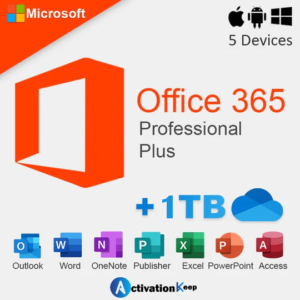
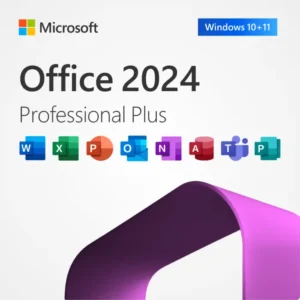
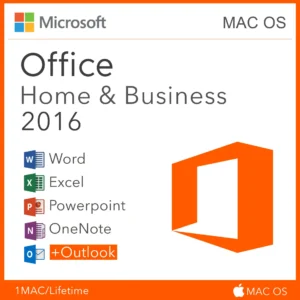

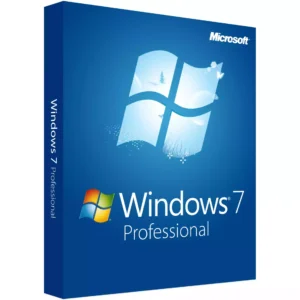
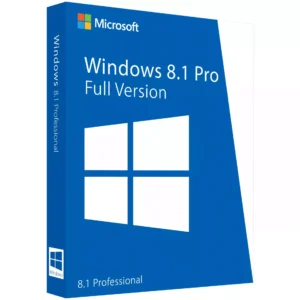
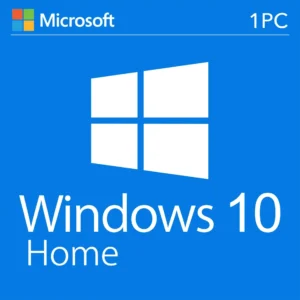
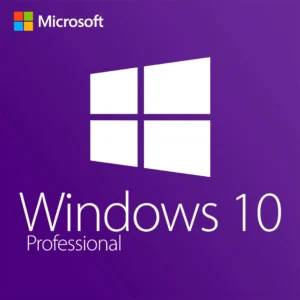

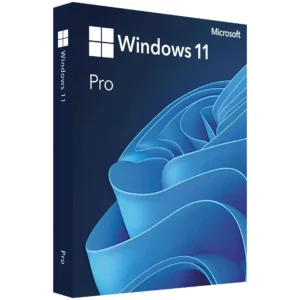
At Activation Keep, we are striving to become the top online store for software, a one-stop shop for digital downloadable products
Activation Keep designed by Activation Keep LTD
© 2024 Activation Keep | Microsoft Certified Partner | Activation Keep LTD | Company N: 14725825 | – All rights reserved
